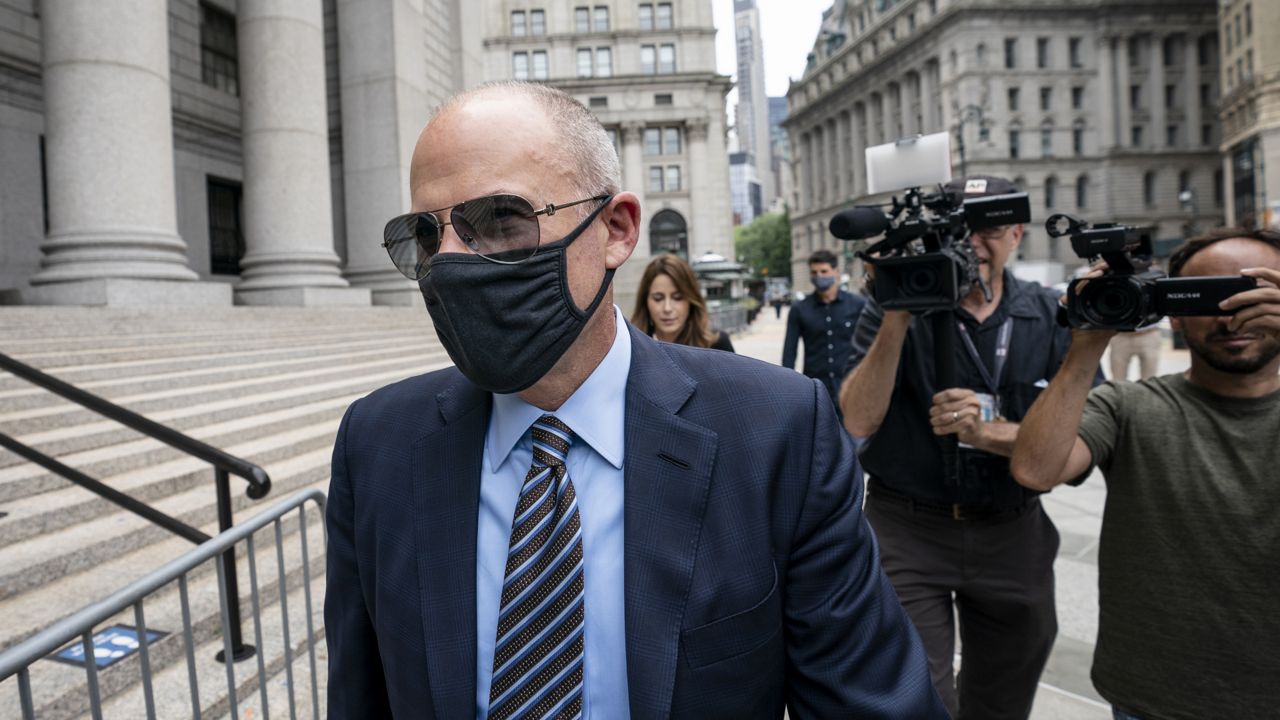SANTA ANA, Calif. (CNS) — A federal judge agreed Monday to convicted attorney Michael Avenatti's request for an evidentiary hearing stemming from allegations a former federal prosecutor has been using social media to comment on the embezzlement case against him.
Avenatti alleged in the motion seeking the hearing that former Assistant U.S. Attorney Julian Andre, who is now in private practice, has been commenting on the case on Twitter. Andre left the U.S. Attorney's Office earlier this year to become a junior partner at the Century City office of the global law firm McDermott Will & Emory LLP.
U.S. District Judge James Selna will consider the motion Tuesday morning before jury selection is scheduled to resume. Opening statements and testimony are expected to begin Wednesday.
Federal prosecutors did not have an immediate comment on the demand for an evidentiary hearing, said Thom Mrozek, a spokesman for the U.S. Attorney's Office.
Avenatti's attorney, Dean Steward, said in court papers that the defendant "believes, however, that former AUSA has remained in close contact with the agents, attorneys, and (U.S. Attorney's Office) staff continuing to prosecute this matter, including in the weeks leading up to trial and since voir dire began on July 13."
The main objection appears to be Andre retweeting a Los Angeles Times article about the trial that included information about Avenatti's 30-month sentence in the Nike extortion case and prospective juror comments during jury selection.
"The defense has just discovered that former AUSA Andre has been publicly commenting and promoting misinformation about this case and Mr. Avenatti, including derogatory and prejudicial information about him, through the use of social media," Steward said in court papers.
"This conduct has spanned months, including in the days immediately before jury selection began and as recently as this weekend (in the middle of jury selection). The conduct is even more egregious because former AUSA Andre has made it a point to make his personal knowledge and involvement in Mr. Avenatti's case known (including on a recent podcast) and has amplified information to the public and the press that he knows to be questionable at best (if not entirely false) and highly prejudicial."
Steward argued that federal prosecutors have known about "this misconduct for months... but failed to inform the defense or the court and also appears to have done nothing about it." The U.S. Attorney's Office follows Andre on Twitter, Steward noted.
Steward also said Andre appeared on a podcast making "mocking" comments about Avenatti and his "trilogy of cases,' and comparing it to the Star Wars trilogy, all the while misstating the facts surrounding the charges."
Avenatti is charged in a 36-count indictment accusing him of 10 counts of wire fraud, eight counts of willful failure to collect and pay over- withheld taxes, 10 counts of failing to file tax returns, two counts of bank fraud, a count of aggravated identity theft, three counts of a false declaration in bankruptcy and a count of providing false testimony under oath in bankruptcy.
Avenatti faces trial this week on just the 10 counts of wire fraud with the rest of the case to be tried at a later date.
Prosecutors are expected to argue that between January 2015 and March 2019, Avenatti ripped off at least five clients out of almost $10 million in settlement funds.



